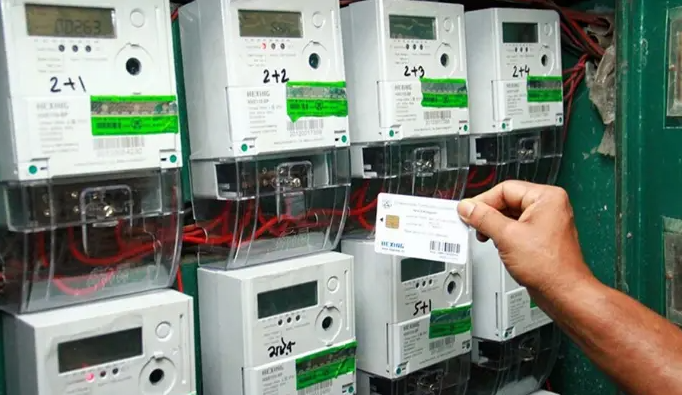Fifteen months after the federal government raised electricity tariffs for Band A customers—households and businesses receiving at least 20 hours of power daily—energy experts are raising concerns over a staggering N2.493 trillion in subsidies spent to keep the nation’s lights on, a figure that rivals the government’s total subsidy bill from 2018 to 2023.
Recall that in April 2024, the Nigerian Electricity Regulatory Commission (NERC) approved a sharp increase in Band A tariffs, tripling rates from as low as N66 to N225 per kilowatt-hour. This move was explicitly aimed at reducing the government’s subsidy burden, with Band A customers initially exempted from subsidies and expected to pay cost-reflective rates.
Despite these reforms, government data shows that subsidy payments have remained stubbornly high.
As of July 2025, official regulatory figures confirm federal electricity subsidy obligations soared to nearly N1.94 trillion in 2024 alone, only marginally below the estimated N2.493 trillion accrued over the last 15 months. This span is nearly equivalent to the cumulative amount spent during the previous six years, from 2018 to 2023 which amounted to N2.5 trillion.
The Commission’s report found that subsidies have fluctuated widely over the past decade, but never reached these levels, citing N230 billion in 2015, N310 billion in 2016, N350 billion in 2017, N440 billion in 2018, and N530 billion in 2019.
Subsidy numbers remained elevated through 2020 (N510 billion), 2021 (N250 billion), 2022 (N140 billion), and 2023 (N650 billion), before the 2024 spike.
The NERC in a move to address the issue announced a hike in electricity tariffs for Band A customers, those receiving at least 20 hours of daily supply, on April 3, 2024, prompting tariff to move from N66 per kilowatt-hour to N225/kWh, before being adjusted downward to N206.80/kWh in May.
The tariff increase was projected to cut government subsidies by N1.14 trillion in 2024.
And while it initially reduced subsidy liabilities to N380 billion in the second quarter (Q2), the gains were short-lived.
By the third quarter (Q3), the subsidy bill had climbed to N464 billion. In the fourth quarter (Q4), it reached N556 billion as inflation and currency devaluation continued to erode the benefits of cost-reflective pricing.
There are growing concerns with figures tied to subsidies payable by the government which are not in tandem with service delivery across the power sector value chain.
Reacting to the record subsidy report by the Nigerian Electricity Regulatory Commission (NERC), President Network For Energy Reforms Nigeria, Kunle Olubiyo, said payment of subsidy and tariff hike under banding policy had not created the necessary framework for the power sector growth.
The Commission in a report said that the federal government’s freezing of electricity tariffs for most customer categories, resulted in the rise of electricity subsidies.
In the first quarter of 2025, Nigeria’s electricity subsidy reached N536.4 billion, according to NERC, which represents a 13.7 per cent increase compared to the N471.69 billion spent in the last quarter of 2024.
The subsidy is a result of the government’s decision to maintain current consumer tariffs despite rising electricity generation costs.
Stakeholders cited several drivers behind the persistent subsidy spike to include the rapid devaluation of the naira, which significantly increased power generation costs as gas and equipment expenses rose.
Also, the tariff freeze for other customers—while Band A rates rose, tariffs for other bands remained frozen, inflating the shortfall covered by the government.
The policy initiated in December 2022 persisted even as inflation and foreign exchange (FX) volatility moved up the actual cost of electricity production.
The Commission in its report said that the federal government’s directive to freeze all customer tariffs at the December 2022 approved rates, despite the increase in the cost-reflective tariffs arising from the major increase in FX rates, caused the subsidy to hit N633.30 billion in 2024/Q1.
The first quarter (Q1) subsidy alone represented a 303 per cent increase from the 2023 quarterly average of N157.15 billion, and a staggering 1,699 per cent surge from 2022’s average of N35.21 billion per quarter.
The report showed that Nigeria’s electricity subsidy bill hit a historic N1.94 trillion in 2024, the highest level in a decade.
Reflecting on the report in a chat with LEADERSHIP, Olubiyo, faulted different components of the tariff structure, arguing that none has provided impetus for efficiency across key components of the industry, from generation, transmission and transmission.
Olubiyo, recalled that since 2012 tariff has been adjusted to about 500 per cent and only 400MW had been added to the grid from that period till date.
However, he said that at a public hearing conducted by NERC last Thursday, the Commission has set an agenda that will drive Key Performance Indicators (KPI) across the chain.
He said, the sector is significantly challenged ranging from liquidity crisis to absence of Corporate Governance.
According to him, the country’s privatisation model does not support growth drive and should be reviewed to provide necessary investment and drive efficiency.
He said currently, while band ‘A” customers are paying about N250 per kilowatt-hour, and government paying subsidy, electricity distribution companies could hardly replace obsolete or damaged assets, but rather indirectly push the responsibility to customers.
In his view, the chief executive officer of Centre for Promotion of Private Enterprise (CPPE) Dr. Muda Yusuf, said the solution to the subsidy issue is to encourage shift to offgrid and renewable energy because the government could not completely do away with subsidy support.
However, he called for an innovative but sustainable subsidy regime that would not be too expensive for the government.
Yusuf further posted that introducing a full commercially driven tariff could put a stop to the subsidy payment but that on its own could have a political backlash given that Nigerians have not fully recovered from the petrol subsidy withdrawal.
He said any attempt to go that route would give the opposition the ground to instigate protest against the ruling government.
According to him, the forex convergence and escalating cost of living from the petrol subsidy removal is choking a lot of families.
But he said a cost reflective tariff regime would enable DisCos generate liquidity to pay for power from generation companies.
He also proffered that the government should hands off the running of the Transmission Company of Nigeria (TCN) to engender efficiency in the system.





